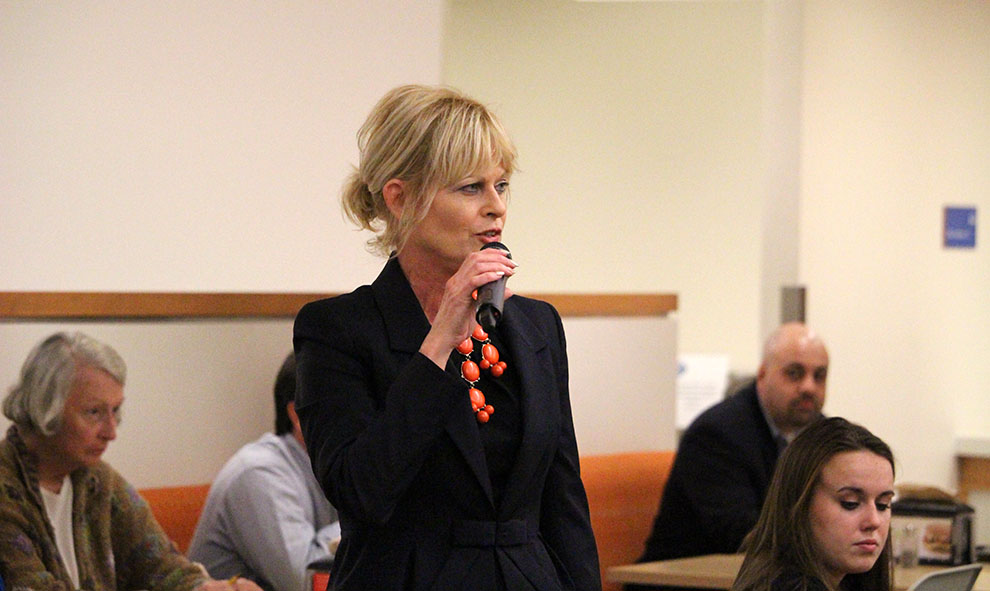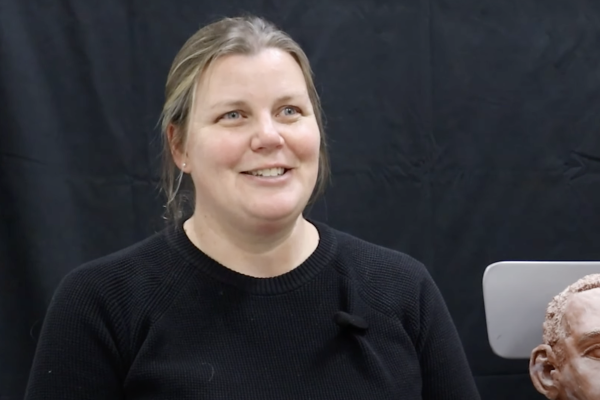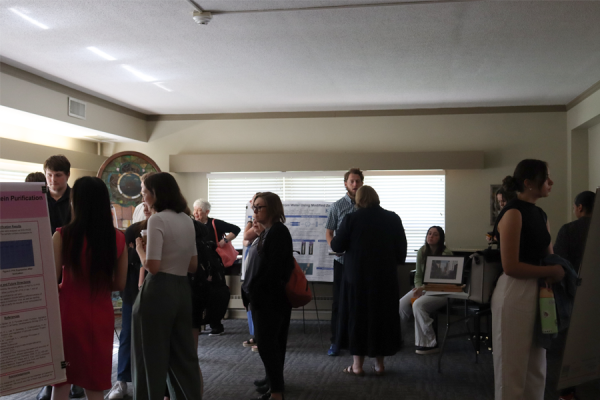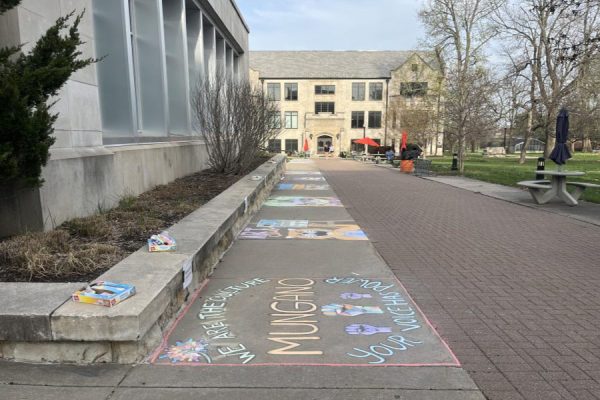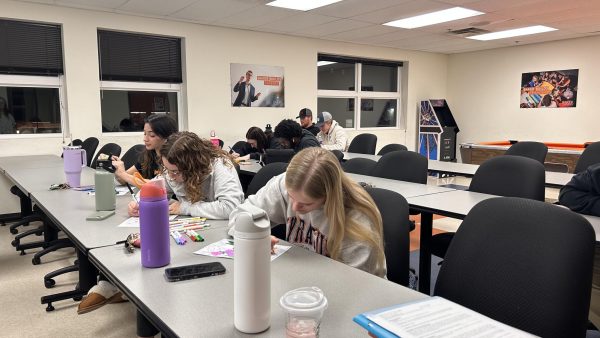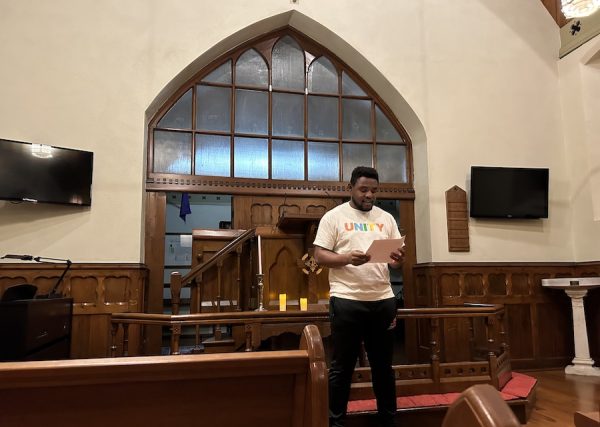Inclusion forum starts important discussion on campus
In light of recent events at the University of Missouri that resulted in racial tension on campus, President Lynne Murray, Associate Dean of Students and Director of Diversity and Inclusion Teresa Clounch and Dean of the School of Professional and Graduate Studies Jake Bucher recently invited students to an Open Forum on Inclusion.
In an all-campus e-mail Murray said, “We make a pledge to be personal, and we know our community is at its very best when every individual believes their voice is being heard.”
On Nov. 18 in the student union cafeteria, students and faculty gathered to discuss their feelings on inclusion.
Campus Minister Kevin Hopkins opened the forum with a prayer, and Bucher served as the moderator for the event.
Bucher said that this was a chance for students to “check in with themselves” and also have an open conversation in a safe environment.
“We’re going to help create students who are competent, confident contributors to society,” Provost Brian Posler said, quoting part of the Baker University mission statement. “We cannot have this without having discussions about race, gender and other social issues.”
According to the most recent statistics from the Baker University Fact Book for self-reported student ethnicity on the Baldwin City campus, approximately 75 percent of students identify as “white,” while the remaining 25 percent identify in other categories, such as Black, Hispanic, American Indian or Asian.
Students acknowledge it is possible for minority students to feel uncomfortable.
“As minority students we feel uncomfortable because we look around and we’re the only minority in the class,” sophomore Rosie Richmond said. “But, I will say that no one makes it obvious and everyone is treated the same, which is one of the things I love about Baker.”
Bucher encourages students to recognize their “privilege” in situations like the one mentioned by Richmond.
“Part of recognizing your privilege is realizing that you may have a different experience than other people in that classroom,” Bucher said.
Other students are sometimes frustrated with what seems to be a lack of interest by their peers.
“I feel as though a lot of white students are scared to speak up about racial issues,” junior Dory Smith said. “That’s offensive to me because it’s almost like saying “it’s not that big of a deal.”
Clounch suggests that all students should learn more about the histories of other minorities, stating that it is everyone’s history. She said that she wants to bring in speakers to discuss different aspects of diversity and get more students involved in Mungano, which is a campus organization that promotes diversity.
The forum, however, was not only focused on racial issues. Some questions involved what Baker is doing to include LGBTQ students.
“We are supporting LGBTQ students in ways you may not see every day,” Murray said.
One of these ways is Safe Zone training that will be available to students, faculty and staff on campus at no charge. Safe Zone training is an opportunity for those who attend to learn how to better support LGBTQ students and learn appropriate LGBTQ language and terminology. Safe Zone training is scheduled for 8:30 a.m. to noon on Jan. 6 and from 1 to 4:30 p.m. on Jan. 7.
Senior and Mungano President Lauren Brown thinks the forum was “very beneficial” and got students talking about what may be uncomfortable topics.
Brown also encourages students to make time to take part in diversity events on campus and talk more openly with their peers about social issues.
“President [Murray] and some other administrators said, ‘We want to get together and have a conversation about some of these issues,'” Bucher said. “At the end there were still some hands up, so people had more they wanted to say, but I hope that after they will take these conversations with them and keep them going.”
Posler urges students to actively address the issue themselves first.
“I challenge you all to seek out someone who is the most different from you and have a conversation with them,” he said.
Although the general consensus was that Baker does not have a lot of issues or tensions, Clounch and Murray encourage students to contact faculty, staff or even a resident assistant if they feel uncomfortable or discriminated against. It is the university’s policy to listen, gather information, hold an investigation and ultimately find a resolution.
“We would love to have more of these types of events, but a lot of it depends on students,” Bucher said.
Murray and Clounch agree that students should reach out to them or other administrators if they have ideas for activities.
“We want to hear from you on what we can do better,” Clounch said. “We want students to get involved and share the knowledge you may have.”


